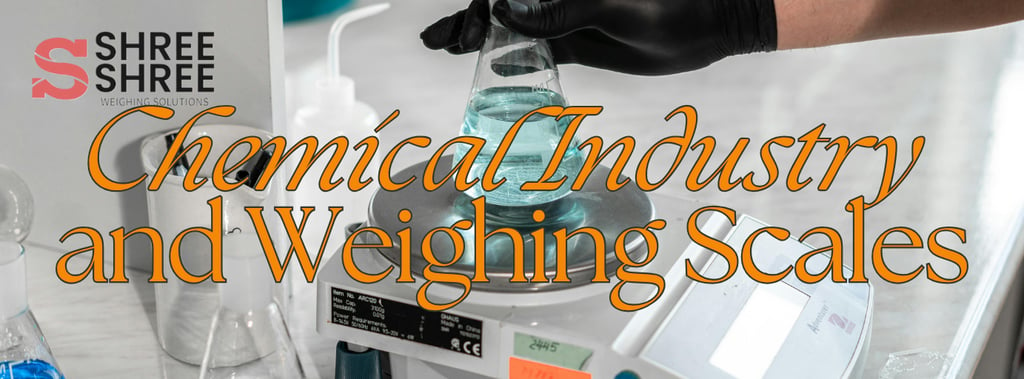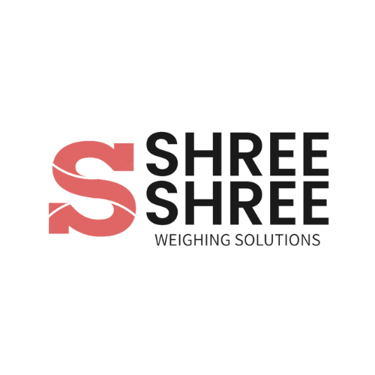Weighing Scales in the Chemical Industry: Precision, Safety, and Efficiency
The chemical industry is one of the most demanding sectors, where the precise measurement of chemicals and raw materials is crucial for ensuring product quality, safety, and regulatory compliance. Weighing scales play an integral role in the chemical manufacturing process, helping companies maintain accuracy in the formulation of chemicals, reduce waste, and improve production efficiency. This blog explores the essential role of weighing scales in the chemical industry, focusing on their applications in ingredient weighing, batch processing, quality control, and regulatory compliance.
4/28/20255 min read


1. Accurate Ingredient Weighing for Chemical Formulations
In the chemical industry, the formulation of chemicals requires precise measurements of various ingredients, whether they are solid, liquid, or gas. Even the slightest variation in ingredient amounts can significantly affect the quality, consistency, and safety of the final product. Weighing scales are crucial for ensuring the accurate measurement of raw materials and chemicals.
Analytical balances and precision balances are commonly used for weighing small quantities of highly reactive or expensive chemicals.
Platform scales are used for weighing bulk materials and larger quantities of chemicals, ensuring that the correct proportions are used for each batch.
By utilizing high-precision weighing systems, chemical manufacturers can ensure that each batch of chemicals is formulated accurately, improving consistency and product quality.
2. Optimizing Batch Processing and Consistency
Batch processing is common in the chemical industry, where raw materials are mixed together in specific proportions to create chemical compounds or products. Consistency is key in ensuring that each batch meets the desired standards. Weighing scales are used to ensure that each ingredient is added in the correct proportion, reducing variations between batches.
Batch weighing systems ensure that raw materials are weighed accurately before being combined, maintaining consistency across production runs.
Automated batch weighing systems can monitor and control the entire process, reducing human error and ensuring that every batch has the correct composition.
By using automated weighing systems, chemical manufacturers can streamline their operations, maintain consistency, and reduce waste.
3. Ensuring Safety in Chemical Manufacturing
The chemical industry often deals with dangerous substances that require strict safety precautions. Weighing scales help improve safety by ensuring that the correct amount of chemicals is used in each process, preventing the accidental mixing of improper quantities that could lead to hazardous reactions.
Explosion-proof balances and antistatic weighing systems are designed to handle flammable chemicals, ensuring that hazardous materials are weighed safely.
Weighing systems with safety features, such as automatic shut-offs and overfill protection, help to mitigate the risks associated with handling dangerous chemicals.
By using safety-certified weighing equipment, chemical manufacturers can reduce the risk of accidents and ensure that production processes are carried out safely.
4. Quality Control in Chemical Production
Quality control (QC) is essential in the chemical industry to ensure that the end product meets the required specifications for purity, strength, and stability. Weighing scales are used extensively in the quality control process to monitor ingredient quantities, check batch consistency, and verify the accuracy of formulations.
High-precision balances are used to test the purity of raw materials and finished products, ensuring that each chemical meets regulatory standards.
Weighing systems help manufacturers check the consistency of each batch, ensuring that the product complies with quality assurance procedures and regulations.
By integrating weighing systems into their QC process, chemical manufacturers can improve product quality, reduce waste, and enhance production efficiency.
5. Supporting Regulatory Compliance in the Chemical Industry
The chemical industry is subject to a range of regulations and standards that govern safety, quality, and environmental impact. Weighing scales are essential in helping manufacturers meet these regulations by ensuring accurate measurements and traceable documentation for audits and inspections.
Certified weighing equipment ensures that all measurements comply with national and international standards, such as ISO and OIML certifications.
Weighing records can be logged and stored electronically, providing a detailed audit trail for regulatory inspections and audits.
By using compliant weighing systems, chemical manufacturers can maintain regulatory compliance, reduce the risk of legal issues, and ensure that their products meet both safety and quality standards.
6. Reducing Material Waste and Improving Efficiency
Reducing waste is crucial in the chemical industry, not only to lower production costs but also to minimize the environmental impact of manufacturing processes. Weighing scales help chemical manufacturers reduce material waste by ensuring that the exact quantities of chemicals are used in production.
Precision weighing systems ensure that chemicals are measured accurately, preventing overuse and wastage of expensive or hazardous materials.
Batch weighing systems help manufacturers optimize material usage by accurately measuring ingredients before mixing, reducing the risk of overfilling or underfilling containers.
By adopting high-precision weighing systems, chemical manufacturers can improve their operational efficiency, reduce waste, and enhance sustainability in their production processes.
7. Facilitating Traceability in Chemical Production
In the chemical industry, traceability is critical to ensure that products can be traced back to their origins in the event of a safety or quality issue. Weighing scales support traceability by recording precise measurements of raw materials and final products, which helps improve accountability and transparency.
Automated weighing systems can log all data, including ingredient weights, batch numbers, and production times, to create detailed records.
Weighing systems can be integrated with inventory management systems to track the movement of materials through the production process.
By using traceable weighing systems, chemical manufacturers can improve accountability, ensure product safety, and comply with regulatory traceability requirements.
8. Enhancing Product Integrity and Consistency
The chemical industry demands high product integrity and consistent quality. Even small variations in the formulation can lead to significant product defects. Weighing scales ensure that raw materials are measured accurately and consistently, which is essential for producing products that meet exact specifications.
Analytical balances are used to measure small quantities of active ingredients with high accuracy, ensuring that formulations remain consistent.
Platform scales help measure bulk ingredients with precision, ensuring that large batches are mixed with the correct proportions.
By using consistent weighing solutions, chemical manufacturers can maintain the integrity and reliability of their products, ensuring that customers receive products of the highest quality.
9. Supporting Environmental Sustainability in Chemical Manufacturing
Sustainability is an important consideration for modern manufacturers, including those in the chemical industry. Weighing scales contribute to sustainability efforts by reducing material waste, optimizing resource usage, and helping manufacturers adopt more eco-friendly practices.
Precision weighing systems help ensure that chemicals are used efficiently, minimizing waste and reducing the need for additional resources.
Data logging systems can help track material usage, enabling manufacturers to identify areas where resources can be conserved.
By integrating sustainable practices with weighing systems, chemical manufacturers can reduce their environmental impact and improve resource efficiency.
10. Improving Supply Chain Management in the Chemical Industry
Supply chain management is critical in the chemical industry, where raw materials need to be sourced, stored, and transported in compliance with safety regulations. Weighing scales play a key role in improving supply chain efficiency by accurately measuring raw materials and finished products.
Weighing systems help track inventory levels, ensuring that manufacturers receive the right quantity of materials at the right time.
Checkweighers help ensure that products are weighed correctly before shipping, ensuring that customers receive the correct quantity.
By using accurate weighing systems, chemical manufacturers can improve supply chain efficiency, reduce inventory errors, and maintain a steady flow of materials.
Conclusion
Weighing scales are essential tools in the chemical industry, playing a critical role in ensuring precision, safety, efficiency, and regulatory compliance. Whether it’s for ingredient weighing, batch processing, quality control, or traceability, weighing systems help chemical manufacturers optimize production, reduce waste, and ensure that products meet high-quality standards. By investing in advanced weighing solutions, chemical companies can improve their operations, reduce costs, and maintain the highest standards of product quality and safety.
At Shree Shree Weighing Solutions, we provide a comprehensive range of weighing systems tailored to the unique needs of the chemical industry. From analytical balances to automated batch weighing systems, our equipment helps you maintain precision, compliance, and efficiency in your operations.
Need Reliable Weighing Scales for the Chemical Industry?
📞 Contact us today for advanced weighing solutions designed for the chemical industry.
📍 Visit our Ahmedabad showroom, or schedule a demo at your chemical manufacturing facility across Gujarat.
